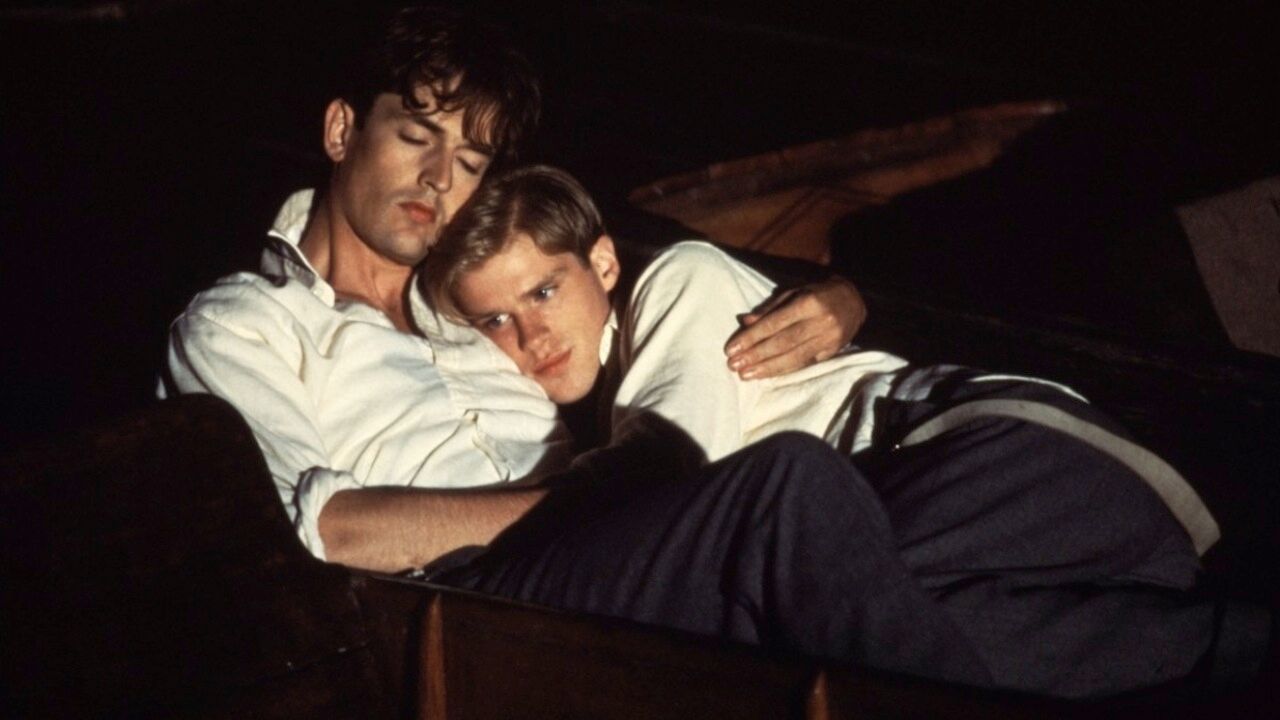As a young gay, before I was turned on to the good word of Merchant Ivory, I discovered Marek Kanievska’s Another Country.
The 1984 film—not to be confused with the brilliant James Baldwin novel of the same name—wasn’t just a beautifully shot, fascinating take on Soviet spy Guy Burgess. It was also extremely hot, tender, and romantic. Before I’d seen any true romances between men onscreen, I got to see a young Rupert Everett and Cary Elwes fall in love beneath the Eton-esque archways of an unnamed British public school in the 30s.
RelatedAs one of the world’s first openly-gay filmmakers, Anger knew what it was to take risks.
Back then, even though gay sex was de rigueur at such schools (and still is), you had to keep it on the QT, lest you wanted a taste of the belt or the cane. Because yes, corporal punishment was very much a thing back then. Shortly after we meet Guy Bennett (Rupert Everett) he’s explaining to his roommate Judd (a VERY young Colin Firth) how he’d like to lick the honey off of Harcourt’s (Cary Elwes) naked body. Because while most of the boys at the school jerk each other off from time to time, few of them actually identify as gay. For…you know…reasons. But Bennett knows he’s queer, and he’s not ashamed of it. When he first sees Harcourt, he falls in love. He knows it’s something more than a quick f*ck in the showers. Bennett romances Harcourt secretly, and the two find comfort in each other, bonding over their shared hatred of the school and their stern British families who would never condone their coming out.
Things heat up once one of the senior boys decides he wants an excuse to punish Bennett the “queer.” He finds a note Bennett intended for Harcourt, intercepts it, and canes the sh*t out of Bennett. He and Harcourt never see each other again, and we learn that Bennett left the UK to live in Russia fulltime, after serving as a Soviet spy for years.
This short synopsis doesn’t do the film justice, of course: it’s a genuinely tender, painful love story, and an only slightly fictionalized version of what Guy Burgess actually went through as a young man growing up gay in the 1930s. He started out by wanting to fit into British society: he angled for power at his school, trying his best to be appointed a “God” and wield his power over all the other students. But after he got singled out for his queerness, he realized that power wasn’t what he wanted. He just wanted to feel like he was part of something. And he couldn’t do that in England.
Another Country was playwright Julian Mitchell’s attempt to cast Burgess in a more kindly historical light by offering context for his actions—some of which, like helping to bring about the Nazi-Soviet pact, are not exactly heroic. But the play, and the resultant film, were more than that. They were stories about where and how people find connection when they’re too “other” to enter the preexisting power structures that determine who gets to live a happy life and who gets confined to the shadows and alleyways of history.
It’s a beautiful film that I’m always happy to revisit, and I highly reccommend you do the same.













